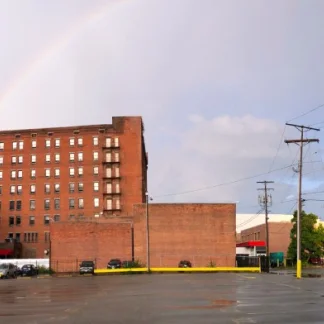Women's Recovery Center
Women’s Recovery Center is a private rehab located in Cleveland, Ohio. Women’s R...
Harbor Light Salvation Army is a comprehensive alcohol and drug rehab center in Cleveland, Ohio. Catering to individuals struggling with homelessness, substance abuse, and other life challenges, the facility offers a sanctuary and a path toward recovery and stability.
The Harbor Light Complex’s approach to addiction recovery includes various levels of care and services:
The detoxification services at the Harbor Light Complex offer a safe and medically supervised environment for individuals beginning their recovery journey. This critical first step allows for the safe management of withdrawal symptoms, providing a foundation for sustained sobriety.
Residential treatment at the Harbor Light Complex provides a structured and supportive environment for in-depth addiction recovery. This program includes individual counseling, group therapy, and holistic approaches to treatment, fostering personal growth and healing.
The intensive outpatient program (IOP) at the Harbor Light Complex is designed for those who require a structured treatment approach but can maintain their daily responsibilities. This program offers flexible yet comprehensive care, including therapy sessions and support groups.
Understanding the importance of continuous support, the Harbor Light Complex provides aftercare and relapse prevention services. These programs focus on maintaining sobriety, offering ongoing counseling, and building a support network to help individuals navigate challenges after treatment.
Harbor Light may accept multiple insurance plans, such as Aetna, Humana, Beacon, Cigna, Blue Cross Blue Shield, and more. Check with the insurer to verify coverage information and out-of-network benefits.
Contact us for more information: (216) 781-3773

Connect with Harbor Light - Outpatient Program by calling their admissions team directly.
(216) 781-3773 Website Get DirectionsThe Substance Abuse and Mental Health Services Administration (SAMHSA) is a branch of the U.S. Department of Health and Human Services. Established in 1992 by congress, SAMHSA's mission is to reduce the impact of substance abuse and mental illness on American's communities.
SAMHSA Listed: Yes
State Licenses are permits issued by government agencies that allow rehab organizations to conduct business legally within a certain geographical area. Typically, the kind of program a rehab facility offers, along with its physical location, determines which licenses are required to operate legally.
State License: Ohio
Group therapy is any therapeutic work that happens in a group (not one-on-one). There are a number of different group therapy modalities, including support groups, experiential therapy, psycho-education, and more. Group therapy involves treatment as well as processing interaction between group members.
In individual therapy, a patient meets one-on-one with a trained psychologist or counselor. Therapy is a pivotal part of effective substance abuse treatment, as it often covers root causes of addiction, including challenges faced by the patient in their social, family, and work/school life.
Life skills trainings involve all the skills a person must have in order to function successfully in the world. These include time management, career guidance, money management, and effective communication. Truly successful addiction recovery is based on the ability to not only live substance-free, but to thrive. Life skills teaches the practical necessities of functioning in society, which sets clients up for success in life, and therefore sobriety.
In individual therapy, a patient meets one-on-one with a trained psychologist or counselor. Therapy is a pivotal part of effective substance abuse treatment, as it often covers root causes of addiction, including challenges faced by the patient in their social, family, and work/school life.
Life skills trainings involve all the skills a person must have in order to function successfully in the world. These include time management, career guidance, money management, and effective communication. Truly successful addiction recovery is based on the ability to not only live substance-free, but to thrive. Life skills teaches the practical necessities of functioning in society, which sets clients up for success in life, and therefore sobriety.
Life skills trainings involve all the skills a person must have in order to function successfully in the world. These include time management, career guidance, money management, and effective communication. Truly successful addiction recovery is based on the ability to not only live substance-free, but to thrive. Life skills teaches the practical necessities of functioning in society, which sets clients up for success in life, and therefore sobriety.
Women’s Recovery Center is a private rehab located in Cleveland, Ohio. Women’s R...
Murtis Taylor Human Services System - 13422 Kinsman Road provides settlement hou...
Hispanic UMADAOP - Miguel Prieto Treatment Services provides an individualized t...
Gordon Square Health and Wellness Center is a private rehab located in Cleveland...